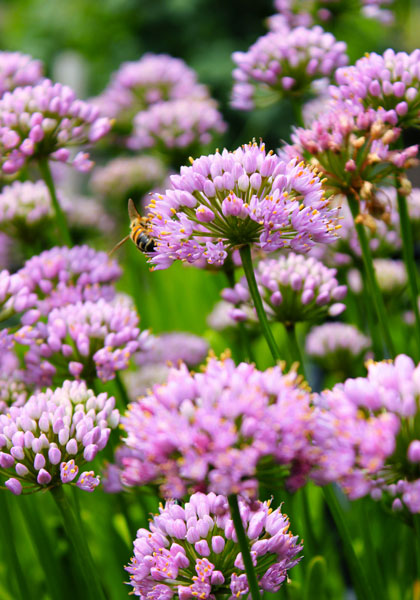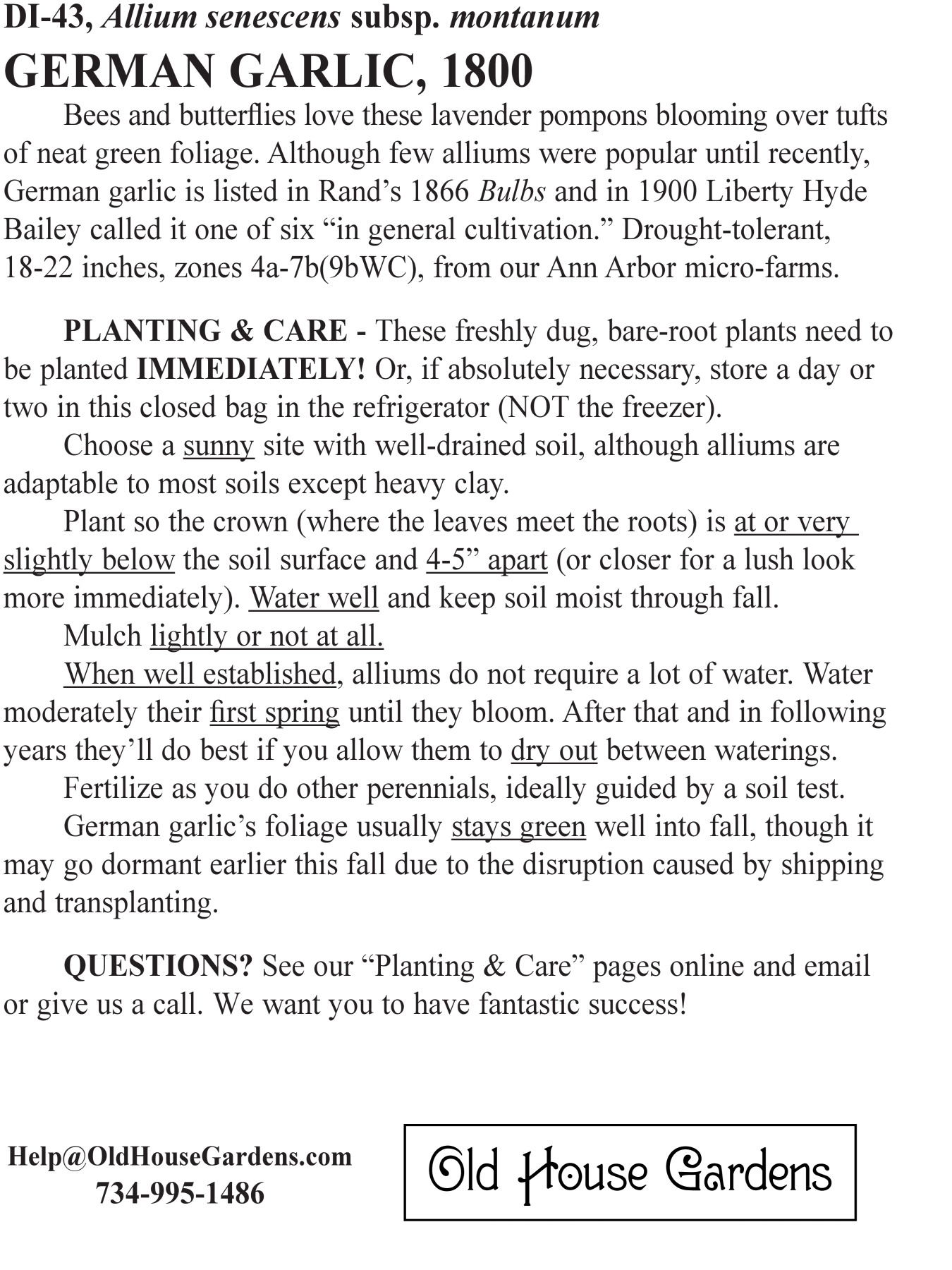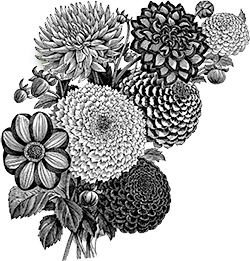|
|

 
|
|
Bees and butterflies love these lavender pompons blooming over tufts of neat green foliage. Although few alliums were popular until recently, German garlic is listed in E.S. Rand’s 1866 Bulbs and in 1900 Liberty Hyde Bailey called it one of just six “in general cultivation.” Drought-tolerant, 16-20 inches, zones 4a-7b(9bWC), from our Ann Arbor micro-farm. |
|
SUB TYPE American, wildflower ZONES 4a-7b(9bWC) HEIGHT 16-20” BLOOM SEASONS summer SOURCE Connecticut, America, United States LIGHT full sun |
PLANTING & CAREChoose a sunny site with well-drained soil, though alliums are adaptable to most soils except heavy clay. Plant with tip up, about 3” deep and 4-5” apart (or closer for a lush look sooner). Scratch a bit of bulb fertilizer into the soil surface after planting (slow-release 10-10-10 is ideal) and water well. Consider protecting with plastic netting, chicken-wire, etc., for a few weeks after planting, typically the only time critters bother these relatively animal-resistant bulbs. Mulch lightly or not at all. Bark mulch is often too thick or heavy for small bulbs to emerge through and their growth will suffer. When well established, alliums don’t require a lot of water. Water moderately their first spring till they bloom. After that and in following years they’ll do best if you allow them to dry out between waterings. Learn how to use alliums in bouquets at our Bulbs as Cut-Flowers page. Learn more about growing and enjoying alliums at our Fall Diverse Newsletter Archives. |

|
SPRING
|
· |
SUMMER
|
· |
FALL
|
· |
LEARN MORE
|
· |
ORDERING
|

|










